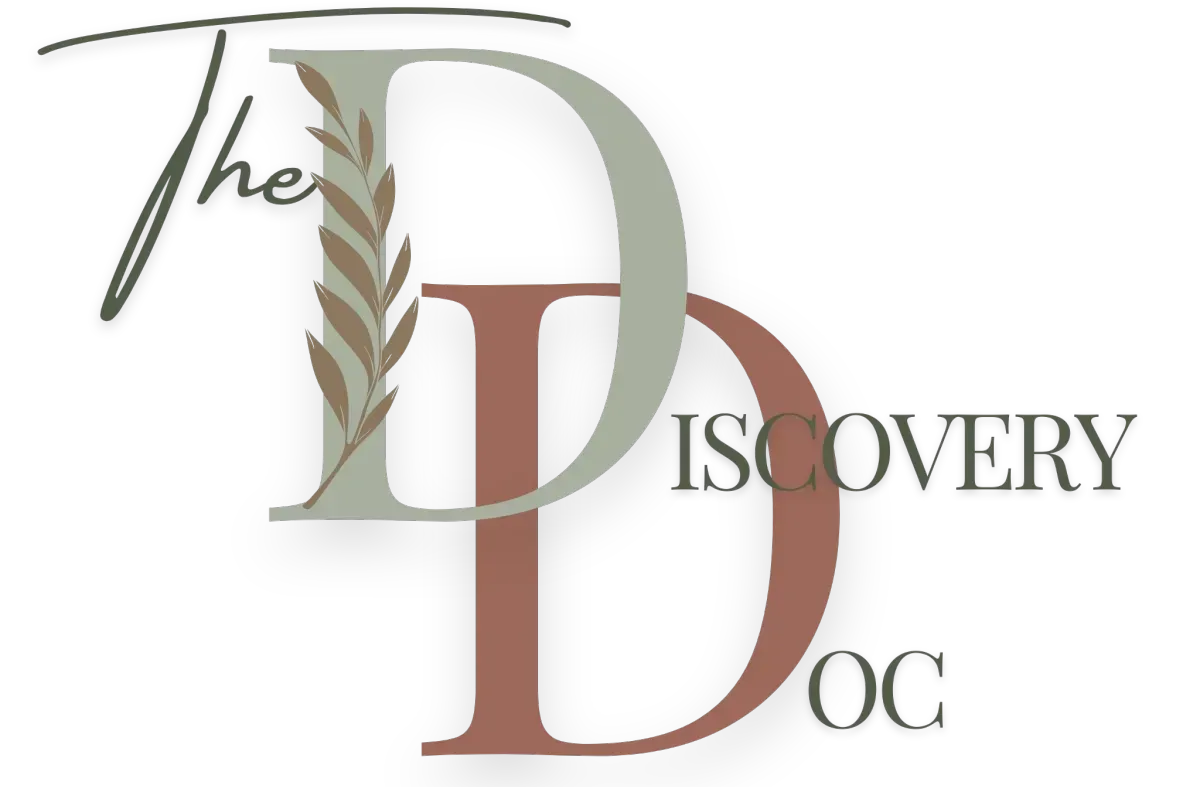Blog

Breaking Free from Diet Dogma: Embracing Nutrient-Rich Living and Intuitive Eating
If you're sick of Restrictive Eating, it's time to Embrace Intuition so you can Thrive

Breaking Free from Diet Dogma: Embracing Nutrient-Rich Living and Intuitive Eating
"Break Free from the Dieting Cycle: Embracing Self-Trust & Intuition," come sit down with holistic coach Jessica Varas to unravel the complexities behind diet culture, the importance of nutrient-dense eating, and the ways we can reclaim our intuitive wisdom for better health.
The Myth of Low-Fat Diets
Low-fat diets, once a hallmark of health-conscious living, are now being scrutinized. Jessica Varas sheds light on the misconceptions that perpetuated the low-fat trend and reminds us of the chemical-laden substitutions that took the place of naturally occurring fats. Essential nutrients and energy are foundational for well-being, she insists, and should not be compromised.
Understanding Nutrient Density:
Among the jargon and promises of the clean-eating movement, the term 'nutrient-dense' has often been misinterpreted. Dr. CeCe steers the conversation towards a holistic understanding of what truly constitutes nourishment for our bodies, urging listeners to relearn the importance of nutrition beyond the simplistic labels of 'clean' or 'unclean.'
Shift Towards Wholesome Strength:
Annah Kate brings a personal touch to the episode, reflecting on her journey from excessive cardio to strength training. She emphasizes that a well-rounded approach to fitness - incorporating macronutrients and resistance exercises - can create lasting and desired transformations in our bodies, debunking the myth that cardio is the only path to fitness.
Diet or Anti-diet? Navigating the Social Influence:
As health trends ebb and flow on social media platforms, Jessica Varas encourages us to view them with a critical eye. The 'diet versus anti-diet' debate rages on, but she points out the importance of sustainable nutrition that doesn't wreak havoc on our metabolism or hormones.
Hormones and Low-Carb Diets
The keto diet is an area of focus when discussing low-carb trends. Our hosts, alongside Jessica, delve deep into the shadow it casts on hormonal health and metabolism. The episodes stress that fats, often cast aside due to enduring misconceptions, play a significant role in maintaining balance within our bodies.
Reconnecting with Our Food:
Starting a food log might seem beneficial, but as Dr. CeCe and Jessica discuss, it can lead to negative outcomes. They shed light on how constant monitoring can disconnect us from our body's cues and create undue stress. Jessica advises listeners to invite a gradual departure from obsessive tracking and to consider the natural signals from our bodies.
Stress: The Diet Culprit:
The undeniable link between stress and suboptimal eating habits is broached in this critical segment. Vacations, while a brief reprieve, can temporarily illustrate how relaxation positively affects our weight and wellbeing. The challenges of sedentary work and its impact on nutritional needs are also explored, urging listeners to focus on stress reduction as a primary step towards healthier eating patterns.
The Call for Intuitive Wisdom
Jessica Varas highlights the importance of addressing each woman's unique health concerns, advocating for trust in one's intuition over societal pressure. The hosts underscore this message, encouraging listeners to find a neutral ground with food that fosters better decision-making for a sound mind and body.
Our episode concludes on a note of gratitude for Jessica's insights and resolutions to change. The overarching message of the podcast is a call to action to rethink our relationship with food, dieting, and our bodies. We encourage our audience to digest this information in the context of their personal health journeys, bearing in mind that wellness is a nuanced and deeply individual pursuit.
Remember, while our podcast fosters a space for conversation and learning, it's always recommended to consult a qualified healthcare professional for personalized medical advice. Join us next time as we continue to dismantle myths, embrace knowledge, and support each other in the pursuit of wellness.
Remember to like, subscribe, and share our podcast if today’s conversation resonated with you. Your support helps us bring more empowering discussions like this to the fore.
The Discovery Doc is your go-to source for all things health and wellness for your family. Stay tuned for upcoming episodes with expert guests, practical tips, and inspiring stories.
For resources on nutrition, recovery, and balanced living, be sure to explore the links provided and tune into our podcast for ongoing conversations about health, family, and adaptability. Join us next time to continue uncovering the layers of individual well-being and harmony between body and mind.
Discovery Doc Podcast: Where Dr. CeCe and Annah Kate provide insights on holistic health and wellness.
Let's Discover Together!
Jessica's 5 Point Plan for Nurturing Intuition and Creating Balanced Nutrition:
1. Embrace Nutritional Education: Take time to understand the basic principles of a balanced diet, focusing on the inclusion of vital nutrients like proteins, carbohydrates, and healthy fats. Knowledge is power, and with it, you can make informed decisions about what to put on your plate.
Implementation Strategy: Register for a nutrition workshop or online course to familiarize yourself with key concepts. Read articles and books from reputable sources and consider consulting a registered dietitian for personalized advice.
2. Cultivate Body Awareness: Practice tuning into your body's signals. Do you eat out of hunger, or are there emotional triggers at play? Learn to differentiate between the two and trust your body to guide you to the right choices.
Implementation Strategy: Start a mindfulness routine involving meditation or deep-breathing exercises before meals to center yourself and focus on physical hunger cues. Reflect on your emotional state regularly to identify non-hunger-related reasons for eating.
3. Gradual Transition from Tracking to Trusting: If you've been logging your food intake meticulously, consider stepping back gradually. Begin by reducing food tracking to understand how your body feels when you eat without strict oversight.
Implementation Strategy: Start by tracking every other day, then progress to tracking only one meal a day. As you grow more comfortable, continue to lessen dependence on tracking apps until you're employing intuitive eating regularly.
4. Prioritize Wholesome Fueling: With desk jobs and less physical activity, it's crucial to provide your body with nutrient-rich foods. Focus less on restriction and more on nourishment to maintain energy and health.
Implementation Strategy: Plan your meals with a variety of whole foods, ensuring each includes protein, healthy fats, fiber-rich carbs, and vegetables. Prepare snacks such as mixed nuts or yogurt to avoid processed options during busy workdays.
5. Limit the Stress of Striving for Perfect Health: The pursuit of health can ironically lead to stress, which is counterproductive. Aim for balance, allowing yourself to enjoy life's pleasures without guilt.
Implementation Strategy: Integrate enjoyable activities into your routine that aren't centered around food or exercise. Schedule regular downtime to relax with a book, a walk in nature, or time with loved ones to counter the health-focused stress.
6. Educate on the Influence of Stress on Eating and Health: Develop an understanding of how stress affects eating habits, digestion, and overall well-being. This awareness can guide you towards a more balanced approach to eating and self-care.
Implementation Strategy: Keep a journal to document stress levels and eating patterns. Observe correlations and work on strategies like yoga or therapy to manage stress before it influences your dietary choices.
7. Recognize and Counteract Social Media and Societal Pressures: Be aware of the constant barrage of diet trends and "perfect" lifestyles on social media. Acknowledge the impact of comparing oneself to these often unrealistic standards.
Implementation Strategy: Limit social media time, unfollow accounts that trigger negative feelings, and curate your feed to include body-positive and health-at-every-size influencers who promote a balanced view on health and nutrition.
Stay Connected and Explore Additional Opportunities The Discovery Doc.
Copyright 2024 The Discovery Doc, LLC®. All Rights Reserved.
The Discovery Doc - Dr. CeCe Brooks - Atlanta Holistic NP
Disclaimer: This is not medical advice.





